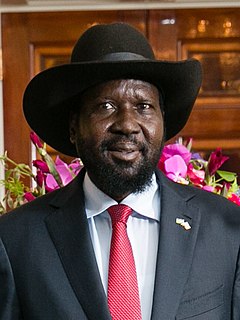A Quote by Alice Waters
I think the biggest impediment to fixing the food system in the United States is that we expect food to be cheap. We want to by other things with our money. We're so disconnected from agriculture - from the culture in agriculture.
Related Quotes
We need to realize that these industrial methods of farming have gotten us used to cheap food. The corollary of cheap food is low wages. What we need to do in an era when the price of food is going up is pay better wages. A living wage is an absolutely integral part of a modern food system, because you can't expect people to eat properly and eat in a sustainable way if you pay them nothing. In fact, it's cheap food that subsidized the exploitation of American workers for a very long time, and that's always been an aim of cheap food.
Agriculture is not crop production as popular belief holds - it's the production of food and fiber from the world's land and waters. Without agriculture it is not possible to have a city, stock market, banks, university, church or army. Agriculture is the foundation of civilization and any stable economy.
Yet if you go to the supermarket and look at food that's produced through industrial agriculture, look at what's happened to the prices. Have they been going down? They've been going up and they will continue to go up. So the choice is either, do we hitch onto a system of agriculture that's doomed and will doom the planet with it, and go along the route of industrial agriculture, or do we want to shift to a kind of system that we know is going to be, in the long run, cheaper, because we'll have a planet left at the end of it? We need to factor that cost in.
For me the two biggest issues are climate change and animal welfare/animal agriculture. And oddly enough animal agriculture is such a contributor to climate change. According to the United Nations, 25% of climate change comes from animal agriculture, so every car, bus, boat, truck, airplane combined has less CO2 and methane emissions than animal agriculture.
If we're eating industrially, if we're letting large corporations, fast food chains, cook our food, we're going to have a huge, industrialized, monoculture agriculture because big likes to buy from big. So I realized, wow, how we cook or whether we cook has a huge bearing on what kind of agriculture we're going to have.
India has the largest number of hungry people. Yet it's an outcome of precisely the same mechanism. It's the control of agriculture that drives down the price it paid for food that it buys from farmers, who are the poorest people. Then you're paying very little for food. You're underpaying the poorest people in any society. Then they're marketing to us the things that are most profitable to them. And those are the things that are packaged and processed and what-have-you. That means you have the simple thing of the explosion of obesity and hunger as a result of capitalism in our food system.
To a very great extent, it's the fast-food industry that really industrialized our agriculture - that drove the system to one variety of chicken grown very quickly in confinement, to the feedlot system for beef, to giant monocultures to grow potatoes. All of those thing flow from the desire of fast-food companies for a perfectly consistent product.



































